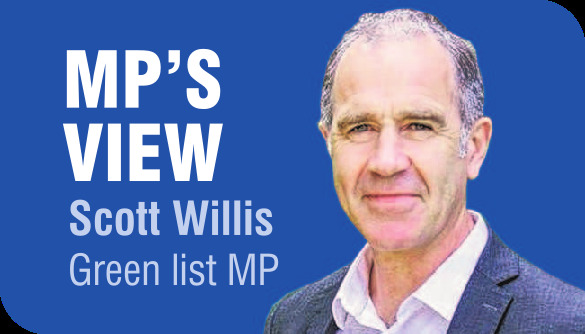
What was also remarkable about it was somewhere between a third and half of this number were protesting for the first time.
It was absolutely inspiring to be part of such a diverse and passionate crowd, calling on the government to come clean and honour an election promise it made to build our region a new hospital up to full spec.
If there’s one thing were learning about this government, it’s that much of what it said and promised in order to get into power last year doesn’t hold water.
And in the case of Christopher Luxon’s pledge to build "this hospital back to the specification that was originally intended, in terms of giving us the capacity we need, and that we will need for the future with the generations to come", it’s another case of saying one thing then doing another.
Failing to fully build Dunedin’s hospital is a betrayal and a kick in the guts for the region where many of our country’s medical professionals are trained.
People of our region, like everyone in this country, have a right to adequate healthcare. We deserve comprehensive health services, not the starving of resources in order to pave the way for the privatisation of our health system.
The Coalition of Cuts has created a funding crisis in Dunedin for the University of Otago, for scientific research and now the hospital rebuild. You cannot underestimate the importance of Dunedin to the country’s health, research and science sectors, yet this government is doing just that.
No matter the spurious claim the hospital rebuild costs blew out in the billions, our health system needs more investment — not budget cuts so the government can fund tax cuts for the wealthy.
There’s a feeling this government has cut the South Island adrift, highlighted by its cancellation of the project to replace the interisland ferries.
Last week our region was drenched by severe weather; the resulting state of emergency a reminder of the government’s refusal to support the South Dunedin Future Programme, which aims to provide security and safety for one of Aotearoa’s communities most exposed to climate risk.
While the government will try to buy us off with niche funding of smaller health projects, I’m heartened by the resolve of our community and the energy of so many people to build something better.
We need to keep talking about the things we care about, because I’m convinced we all share many of the same values. What I saw on September 28 and since is people taking responsibility and letting the government know it underestimates us at its own peril.














